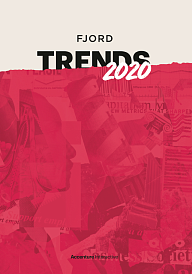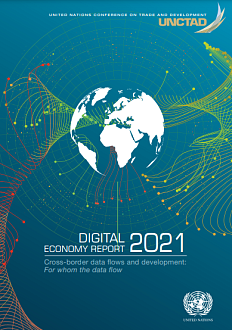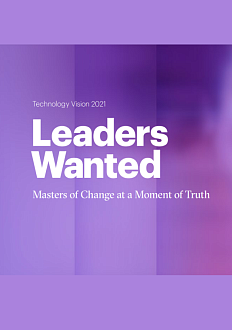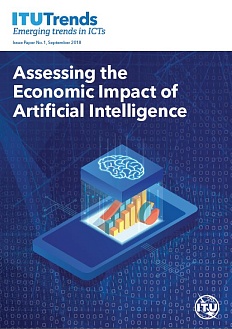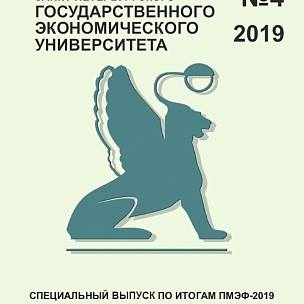Accenture experts present a look at whats ahead for the future of business, technology and design from Fjord, design and innovation from Accenture Interactive.
2020s meta-trend is nothing short of a major realignment of the fundamentals. Its tempting to misinterpret this as a gloomy picture instead, we think this is a once-in-a-lifetime chance to innovate in business models, services and products around new definitions of value.
People continue to be ever more fluid in their behaviors, constantly shifting between traditional demographic segments in ways that seem contradictory.
However it plays out from here, one thing is likely: those who embrace the long-term view by starting with their impact on the world and society, and embracing the systemic complexity of the worldwill emerge as winners.
The Roscongress Foundation presents the salient points of the publication accompanied by fragments of broadcasts of relevant panel discussions from the business programme of international events held by the Roscongress Foundation.
Unsettled by changing societal values, climate change and depleting natural resources, and economic and political instability, people are starting to question long-held beliefs including the notion that growth at any cost is acceptable. As a result, capitalism is having a mid-life crisis.
Questions about capitalisms trajectory of endless growth with profit as the sole metric have moved from shouting on the streets to conversations in the boardroom. Concerns about plastic have developed into a major climate crisis movement, which is now among voters top priorities in many countries. The clash between the technology industry and governments is causing widely felt tremors, as tech giants are considered to have immense power but theres disagreement about who should be held accountable.
Two years ago, we highlighted Tensions as our meta-trend. In retrospect, that led directly to last years meta-trend, The search for value. Now, that search has evolved into a re- evaluation of purpose and place in the world by governments, businesses and individuals alike.
Our experience of money is changing. This includes how we think of it at a macro scale (what it is) and at the micro (what it can do).
The very notion and shape of money is morphing and so is our perception of it, relationship with it, and thus how we think about paying for things. Once, money was a physical entity the shift away from that began a long time ago with credit cards. Now, in a new wave of change, its evolving towards invisible value exchange ecosystems powered by digital a fundamental shift that enables us to do more than just buy things and opens up a host of new product and service opportunities. In this evolution, money can carry other information with it and represent multiple forms of value that arent national currencies. At the same time, banks (old and new) are innovating the ways we think about our personal finances not only now, but in our near future, using Artificial Intelligence.

Once upon a time, we went into a bank and waited in a queue. Then, we self-served with online and mobile banking. Now, many societies in Asia, especially are going cashless. In China, mobile payments are now so common that paying with cash is practically unheard of, even with street performers and taxi drivers. Meanwhile, millions of people in developing countries remain unbanked. New payment ecosystems are being pioneered by non-traditional financial companies, and our relationship with money is being made more ambiguous by seamless or almost invisible systems such as payment by smartphone, payment by facial recognition and cashier-less retail stores. According to CBS News, only 13 percent of Swedish people could remember using cash for a recent purchase and, in the US, 30 percent no longer use cash in a standard week.
As physical features become machine-readable, The Economist recently noted, our faces can be read like a barcode. Your body becomes a signature.
Interfaces are dissolving, and were finding new ways for technology to identify both us and features of our behavior. Combined, these factors create amazing opportunities to continue simplifying our everyday life. Weve grown comfortable with the idea of leaving digital footprints everywhere we go online (though we might not like it much). Now, facial and body language recognition are becoming widespread, so were leaving a physical cookie trail everywhere we go in the real world. With 5G right around the corner, theres abundant potential to design new products and services that address the challenges of physical world data collection and content personalization with real-world solutions and enhanced experiences.
Personalized content, advertising and experiences now familiar in the digital world will soon become mainstream in physical environments. In our 2018 Computers have eyes trend, we highlighted computers growing ability to «read» images thanks to Artificial Intelligence and Machine Learning, and the digitization of physical spaces was at the heart of our 2019 trend Space odyssey. Now, Walking barcodes will present new opportunities for space design as the further merging of our digital and physical selves changes how we interact with the world around us. 5G has the potential to allow endless scope to connect things
people, sensors, machines in new and creative ways. Living services sophisticated, contextually-aware, digital services will move from the digital world into the physical world. The Internet of Bodies will be added to the Internet of Things, facilitating new business models such as bundling and more effective advertising. It will supercharge businesses to work.
As everyday services like automated banking start to combine with digital twins data intelligence, its probable that people will increasingly want everything in one place and under their control.
Instead of struggling to understand our personal data stored in amorphous, abstract clouds, we could keep it in our digital double the perfect mental model for our data double and nurture it to expand its capability, Tamagotchi-style. Organizations will need to understand digital doubles from both a business and human perspective.

Companies must be careful when striving to understand how people relate to their digital doubles, and how their existence changes the way people see themselves. The way our digital doubles are visualized will be important. If we see a proliferation of digital doubles based on idealized or objectified representations of people, theres obvious potential for negative impact on our self-image, as we saw with the airbrushing controversy a few years ago.
The critical consideration for people will be: who do I trust to host my digital double? A critical consideration for organizations will be: how can we design trust and safety in to give people the confidence to choose us as their host? It will be important to design any personal digital double experience to make it engaging, transparent and seamless. Interface and interactions must match the mental model and must be simple and clear.
For more information about construction as a sector with a sizeable share in many economies, rising level of digitalization, and shifts in consumer sentiment in real estate, please see the Artificial Intelligence, AI, Digitalization, Climate Change and Entrepreneurship.


